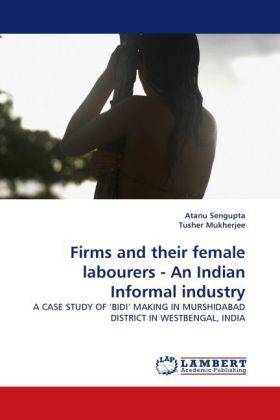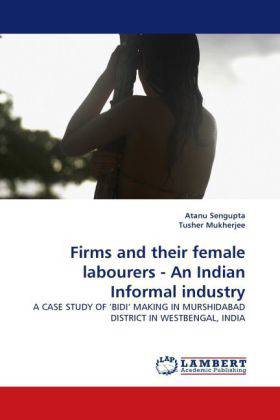
- Afhalen na 1 uur in een winkel met voorraad
- Gratis thuislevering in België vanaf € 30
- Ruim aanbod met 7 miljoen producten
- Afhalen na 1 uur in een winkel met voorraad
- Gratis thuislevering in België vanaf € 30
- Ruim aanbod met 7 miljoen producten
Zoeken
Firms and Their Female Labourers - An Indian Informal Industry
Atanu Sengupta, Tusher Mukherjee
Paperback | Engels
€ 48,45
+ 96 punten
Omschrijving
The informal sector is now asserted to be an integral part of the growth process. This paper enables us to see how far this new concept helps us to understand the condition of female bidi workers in Murshidabad district of the Indian state West Bengal. For this work we have selected Aurangabad, a small town under Suti 2 block in the district of Murshidabad, West Bengal. Bidi industry is a typical putting-out system where the bidi is manufactured at home using raw- materials supplied by the capitalist firms to whom the bidi is sold. Our paper indicates the plight of the informal bidi worker in Murshidabad. They have very little human capital embedded in education and health. Continuous work has hampered their productive capacity and long run sustainability chained by social taboos and injustice. The informal bidi workers are twice deprived, first as an informal sector worker and second as female worker.
Specificaties
Betrokkenen
- Auteur(s):
- Uitgeverij:
Inhoud
- Aantal bladzijden:
- 84
- Taal:
- Engels
Eigenschappen
- Productcode (EAN):
- 9783843375252
- Verschijningsdatum:
- 25/11/2010
- Uitvoering:
- Paperback
- Formaat:
- Trade paperback (VS)
- Afmetingen:
- 152 mm x 229 mm
- Gewicht:
- 136 g

Alleen bij Standaard Boekhandel
+ 96 punten op je klantenkaart van Standaard Boekhandel
Beoordelingen
We publiceren alleen reviews die voldoen aan de voorwaarden voor reviews. Bekijk onze voorwaarden voor reviews.











